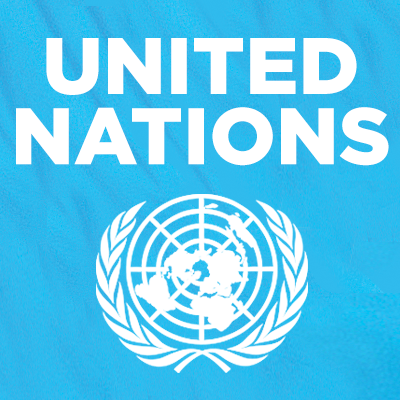A delegation from the UN Security Council has met with Internally Displaced People (IDP) living in South Sudan camps to get first-hand information of their plights.
The delegation which is on its second day of the visit to camp known as “protection of civilians sites”, blamed the political leaders for the crisis and the inability to achieve peace to their country.
US Ambassador to the UN, Ms Samantha Power, told reporters in Juba, South Sudan’s capital city that there were appeals for the Regional Protection Force to be deployed quickly.
The Security Council had approved a 4,000-strong force, in a resolution that also renewed the mandate of the UN Mission in South Sudan (UNMISS).
The Council delegation is led by the Ambassadors of Senegal and the US, and also comprises representatives of all the other ambassadors and rotating member states of the 15-member body.
The US envoy stated: “We heard appeals for the peace agreement to be fully implemented.
“We heard appeals for the UN peacekeeping presence to be more active, to patrol, to offer protection that security forces for the government don’t offer at this time.”
Power said that, the delegation met many people who could recount bullets flying over their head in the crossfire of the crises that occurred about two months ago.
“So this has been an extremely important visit, because it is our chance to see the human consequences of the failure of political leaders to bring peace back to their country,” she said.
The delegation also met with women who were sexually abused on their way to get firewood to cook for their family and children.
“As a mother I can imagine that choice, a choice in whether I cook for my kids or whether I risk sexual violence outside the camp.
“I know I will go and take that risk for my children, I think any mother would.
“Every single individual wants to go home; they are not going home because they want food or water but they are terrified. Many men described life at the sites as a kind of prison.
“They said that they want this prison sentence to end, and the only way to end it is if the UN force gets up to full strength with the deployment of the regional protection force.
“To also end this, the peace agreement must be implemented,” Power said.
It would be recalled that South Sudan was plunged into violence in early July, just before the fifth anniversary of the country’s independence.
The violence saw clashes between rival forces – the Sudan People’s Liberation Army (SPLA), loyal to President Salva Kiir, and the SPLA in Opposition (SPLA-IO), backing former First Vice-President Riek Machar.
The violence led to deaths and injuries, including those of several UNMISS peacekeepers, and undermined the implementation of the peace agreement between President Kiir and Mr. Machar in August 2015, which formally ended their differences.
Machar has since fled the country, raising the spectre of another war. (PANA/NAN)

